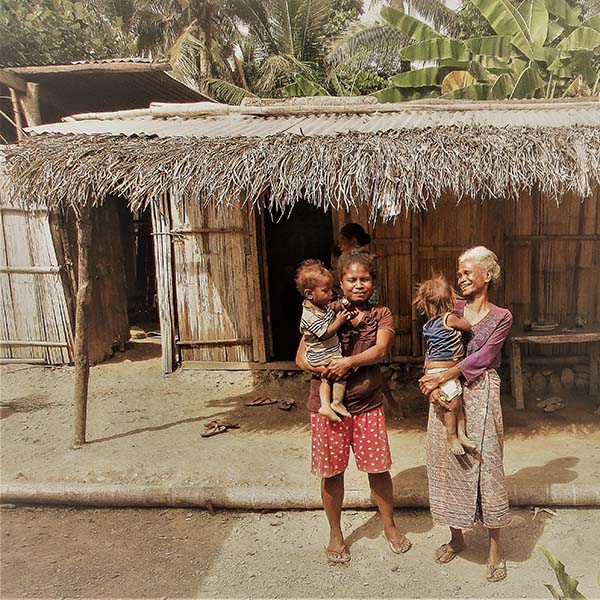Stories of Change

Lucia, her mom and other family members outside their home.
Right now, dry season is a season of hunger. It doesn’t have to be this way.
Lucia Martins lives with her mother, husband, two children and 10 siblings in a modest bamboo house in rural Timor-Leste. Although her community, Liquisa, isn’t too far from the capital of Dili in miles, it is light years away in terms of economic development.
This is why we’re expanding our Timor Zero Hunger initiative to Lucia’s community. The project has several aims, one of which is to work with families to improve young children’s nutrition. There is a focus on pregnant women and nursing mothers, too, so their newborns will benefit directly from their mom’s improved eating habits.
Lucia and her family are farmers like most of their neighbors. They plant seeds and seedlings found in Liquisa: cassava, corn, pumpkin and potatoes. Since dry season began in May, just like dozens of dry seasons before, the family has had a hard time making ends meet. So, as he does year in and year out, Lucia’s husband commuted to the district capital six days a week for work. He makes $15 a week shoveling sand from the riverbeds for construction projects. It’s back breaking work, and he barely earns enough for his family to buy rice, soap and other household essentials.
Dry season in Timor-Leste is a season of hunger.
No families plant seeds or seedlings because there is no water to nurture them to harvest. Food shortages between May and December affect everyone. But the people who are at the highest risk of nutritional losses and sickness are young children. CWS staff are teaming up with mothers and government health workers to change this. One way is to help farmers like Lucia learn to plant wisely and well when the rainy season begins each mid-December. For example, Lucia was recently in a hands-on training where she and her neighbors practiced making raised garden beds, natural fertilizer and compost. “We learned that if we plant close to our house, and use drip watering and homemade treatments, we can continue planting through dry season. This means we can eat more and better food year-round, which will be very good for my children.”
Armed with this new information, Lucia and her family will be more food secure in the future. With more food coming from their garden, they can spend her husband’s income to meet other needs and ultimately will become more resilient.
